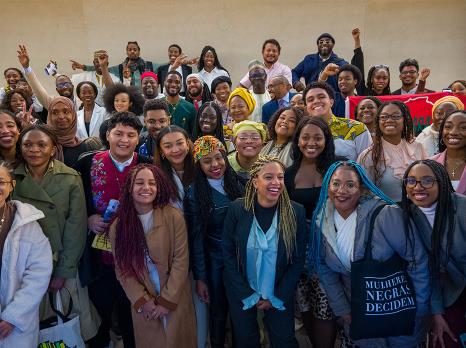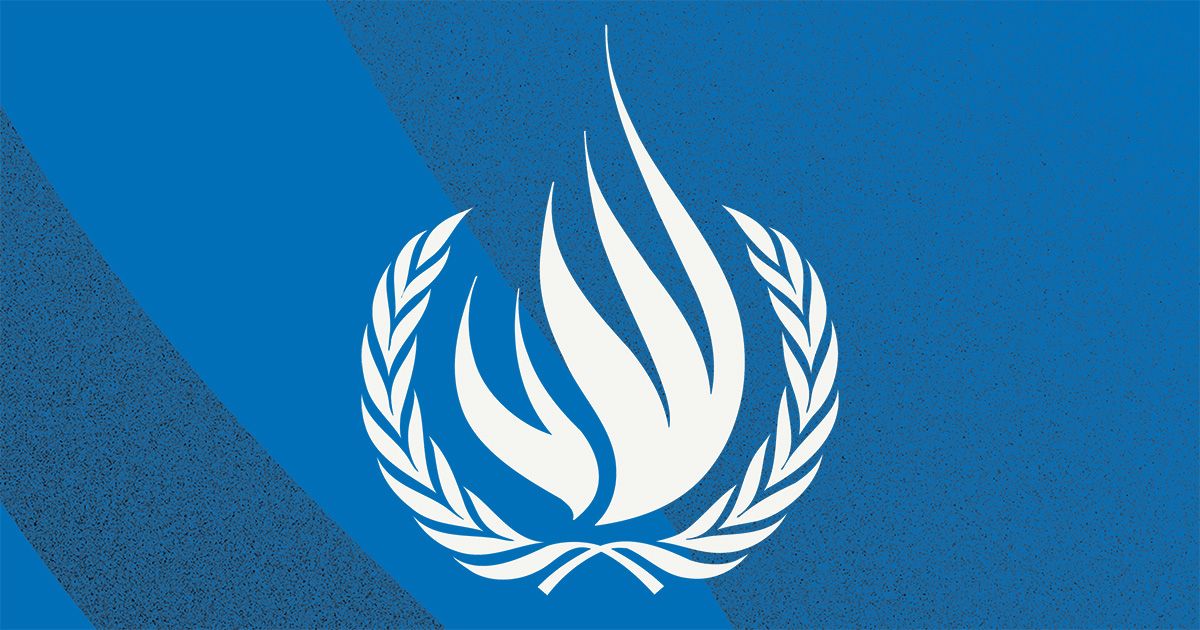
DELIVERED BY
Volker Türk, UN High Commissioner for Human Rights
AT
Regional meeting on the International Decade for People of African Descent for Asia and the Pacific region
LOCATION
Geneva
It is great to start the new year with this particular event, which interconnects two continents, the African continent and the Asia Pacific continent. I am very happy to open this event at a time when we all need to reinforce our commitment to bridging divides, to overcome divisions and to overcome polarization.
We know that eradicating racism and racial discrimination against Africans and people of African descent is essential and indeed long overdue.
For individuals, it means ending the marginalization and unequal access to rights and basic services that can result from that marginalization, including employment, adequate housing, and healthcare. But racism and discrimination also impact society as a whole, depriving it of the full skills, talents and contributions of all of its members.
Recognising the equal rights of all members of society, regardless of sex, race, ethnicity or any other characteristic, is an immensely powerful lever that advances social harmony; increases shared and sustainable prosperity; but also renews greater trust in institutions. It is also the most effective way to build societies that are inclusive and respectful of everyone.
Historically, we know that Africans have lived in the Asia Pacific region since at least the 7th century – as merchants; explorers; students; soldiers; but also as victims of enslavement. Across the centuries, many African communities have taken root, and they continue to contribute immensely to the vigour, diversity and prosperity of societies in the region. Today, the Siddis in India, the Sheedis in Pakistan and the Kaffirs in Sri Lanka are among the largest of these historic communities of African descent.
Yet they, like more recent arrivals from Africa or of African descent, face widespread racial discrimination.
Reports by my Office and various human rights mechanisms have pinpointed serious human rights concerns in several countries of the region –including discrimination, hate crimes, hate speech and racial profiling by law enforcement officers, as well as specific concerns about the rights of African asylum-seekers, refugees and migrants.
While other regions share these issues, pervasive racial prejudice feeds a sense that people of African descent are not full and legitimate members of Asian and Pacific societies. In part, this is the result of the legacies of colonialism and enslavement, which as some Asian and Pacific countries know from bitter experience, were built on toxic notions of racial supremacy that continue to reverberate in the lives of millions of people today. There is also experience in the Asia Pacific region of similar patterns of descent-based discrimination against other marginalised communities, particularly on the basis of caste, as well as against Indigenous Peoples.
These divisions and injustices need to be overcome – for the good of everyone, and I think the 21st century cannot afford to have this continued marginalization and discrimination
Together with the International Convention on the Elimination of All Forms of Racial Discrimination - we have a member here with us - and the Durban Declaration and Programme of Action, the International Decade for People of African descent, is a concrete and action-oriented framework to help States realize their core human rights commitments.
This meeting is an opportunity to discuss specific, practical measures by States, but also by other actors within society, towards greater recognition, justice and development for people of African descent, and to identify avenues for strengthened national, regional and international cooperation. Critically, it also provides a space to listen to the voices of Africans and people of African descent in the Asia-Pacific region – to consider their concerns, to listen to and meaningfully embrace their recommendations, and to celebrate their histories and contributions to the development of their societies.
Let me note some of the measures that I invite you to consider.
First, ratification and full implementation of the International Convention on the Elimination of all forms of Racial Discrimination is particularly important. I urge every country to adopt and apply comprehensive anti-discrimination legislation and in particular to ensure the collection of data disaggregated by race, among other grounds. We cannot fix what we do not see. Participation by people of African descent themselves is crucial to ensure the effectiveness of this work. National human rights institutions and regional mechanisms such as the ASEAN bodies can also contribute greatly to these efforts.
It is vital to ensure that people of African descent have equal access to justice, and are treated by law enforcement officials in accordance with international human rights standards. I invite States to take decisive steps to dismantle systemic racism and achieve reparatory justice, as set out in my Office’s four-point Agenda Towards Transformative Change for Racial Justice and Equality.
I also encourage Governments to promote greater recognition of the achievements of people of African descent – including the distinctive influence of their communities in shaping political, cultural, and intellectual aspects of society in several countries of the region. These facts can be disseminated through school curricula and textbooks, the media, museums, and throughout public life.
Working to end racism and racial discrimination are core goals for my Office – and for me personally. As Coordinator of the International Decade, we work intensely, in close cooperation with States, national human rights institutions, and civil society, among others, to develop practical guidance and campaigns that can immediately be implemented on the ground, for maximum impact.
My Office is open to working with all stakeholders, in all countries, to contribute to their efforts to establish full equality for every member of society.
This includes advice and support to Governments for the development of laws, nation-wide action plans and the establishment of national human rights institutions and equality bodies. Our Fellowship programme for people of African descent has been very positive, bringing in new and important perspectives, and it has advanced the International Decade by strengthening capacities of activists and human rights defenders which really cross cut different regions and bring forward the synergies of experiences of different continents. In fact I met last year many fellows, and I saw how important this work is, also in terms of what they can bring back to their countries. In fact tomorrow you will hear from ten former fellows from Asia and the Pacific about their experiences but also their recommendations for action.
I welcome the Human Rights 75 pledges that have been made by several States from the region last year. Many of them will contribute directly to progress in eradicating discrimination. My Office is very keen to follow up on the different pledges that were made at the high-level event on the 11th and 12th December.
To further these goals, and assist in implementing pledges in this area, I urge you to deepen your dialogues with my Office but also the United Nations anti-racism mechanisms, including the recently established Permanent Forum on People of African Descent and International Independent Expert Mechanism to advance racial justice and equality in law enforcement..
We have entered the final year of the International Decade for People of African descent. And it’s already clear that its work is far from over. It is essential that efforts towards recognition, justice and development for people of African descent be pursued vigorously beyond 2024. I encourage you to contribute to the draft United Nations Declaration on the promotion and full respect of human rights of people of African descent, and the elaboration of complementary standards to the International Convention on the Elimination of All Forms of Racial Discrimination.
I also encourage States to consider a second International Decade for People of African Descent starting in 2025.
Thank you very much.









